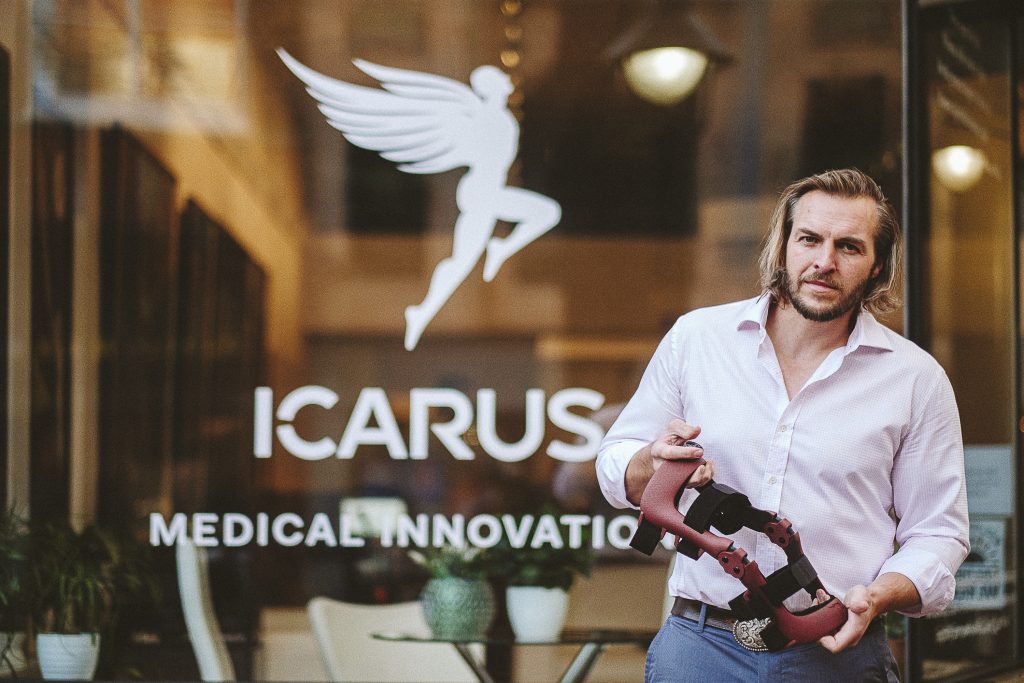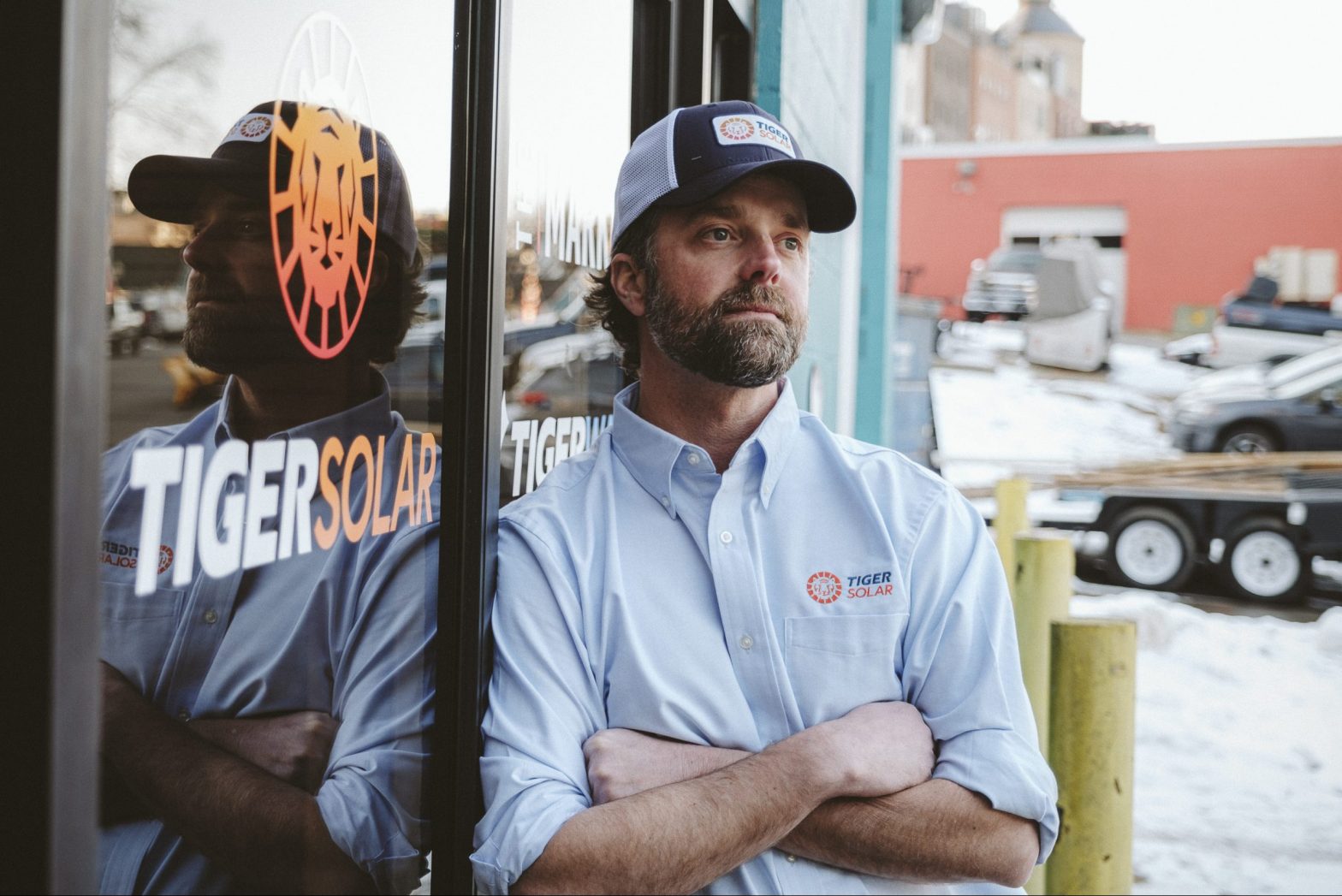Eye of the Tiger
When attorney David Sutton purchased a small Charlottesville oil supplier on the verge of going out of business in 1982, the company had just two trucks to its name—and one had dry-rotted tires. But over the past four decades, Tiger Fuel Company has grown to become one of the largest petroleum distributors in the state. In addition to selling fuel to businesses and homeowners in Virginia and neighboring states, the company runs nearly a dozen gas stations, convenience stores, and car washes across central Virginia.
Last year, the family-owned business made a surprising pivot: It acquired Charlottesville-based solar company Altenergy.
“I’d been wanting to do solar at some of our facilities for a really long time, and had some good friends in the industry who were advising me on that,” says Tiger Fuel President Gordon Sutton. “For years and years, they [said] you could do it just for the feel-good reasons, but it doesn’t make a ton of financial sense. But about three or four years ago, they let me know that had absolutely changed.”
In 2018, Tiger Fuel hired Altenergy to install solar panels at its Preston Avenue and Ruckersville stores. Because the two companies had worked well together, Sutton decided to pursue a partnership, creating the petroleum distributor’s newest branch, Tiger Solar.
Tiger Fuel is now working to bring solar power to the rest of its convenience stores and bulk plants, and will use it for all future real estate projects. It’s also installed electric vehicle charging stations at its Mill Creek store, and plans to add them to more locations.
By transitioning to solar power, the company ultimately aims to reduce its greenhouse gas emissions by 45 percent by 2025.
“It’s no question that the fossil fuel landscape is changing,” says Sutton. “If you’re not growing, you’re dying.”—Brielle Entzminger
‘What’s going on in there?’
Strolling along the Downtown Mall these days will lead you past the quaint restaurants and boutiques that have long been associated with the pedestrian drag. But in some corners, that small business entrepreneurial spirit has taken on a more cutting-edge sheen. Icarus sells custom-made knee braces from its sleek office space near the corner of First and East Main streets. Closer to the mall’s east end Skooma opened last year, promising a “boutique” dispensary experience as full marijuana legalization approaches. Its Apple Store-esque decor strikes an entirely different note than the head shops of yore.

Meanwhile, though plenty of traditional office space still occupies the mall’s nooks and crannies, multiple companies have set up trendy co-working spaces, where individuals or small groups can purchase more flexible access to office space. In addition to hosting larger tenants, the CODE Building houses the Codebase co-working space, which could support as many as 200 workers. Vault Virginia, also downtown, rents conference rooms, suites, and a la carte access to individuals and companies alike. And Common House, on West Market Street, offers membership-based entry to its coffee-shop-vibe multipurpose rooms. The times they are a-changin’.—Ben Hitchcock
If you build it…
Charlottesville’s innovators have had an effect on the city’s skyline in recent years. As the area becomes more and more of a hub for entrepreneurship and the tech industry, all those new employees need workspace, and that’s led to major new developments geared toward office space.
WillowTree has been in to its facility in the old Woolen Mills warehouse since last year. The Charlottesville-based software development firm has worked on digital products for big companies like HBO and McDonald’s, and also put together UVA’s COVIDwise app last year. The corp is very much in the process of pitching Charlottesville as a destination for entrepreneurship: “The future of tech innovation? It’s not where you think,” reads WillowTree’s website, above a picture of its new Woolen Mills campus. Checkmate, Palo Alto.
Closer to downtown, Apex Clean Energy has recently moved in to new digs, too. Apex is a renewable energy company, which organizes and operates solar and wind farms across the country. It has projects close to home, as well: last year, then-Governor Ralph Northam announced that the state would buy the output from Virginia’s first onshore wind turbine farm, operated by Apex and located in Botetourt County. The company’s shiny eight-story Garrett Street office building is made of sustainably harvested massed timber, a construction method that limits carbon emissions. Apex says it’s the tallest timber building on the East Coast.
Then, of course, there’s the CODE Building, which now looms at the Downtown Mall’s west end. The state-of-the-art tech tower opened late last year. The building’s upper floors will be rented to large companies—Jaffray Woodriff’s Quantitative Investment Management has already claimed one, and local wealth management firm Investure has moved in to another. In total, the building could bring as many as 600 workers to the mall.—Ben Hitchcock
Mission driven
Charity Malia Dinko has always had a passion for helping people. After immigrating to the United States from Ghana in 2010, she started sending money back to her hometown village of Worikambo as soon as she landed her first jobs at Walmart and McDonald’s. Making minimum wage, Dinko began to feel like she was not making much of a difference, but soon had a shift in perspective.

“One day I was driving to work, and at the stoplight there was a homeless man begging for money. I only had 25 cents in my car…but God just spoke to me and told me you should give that money to him because that money could add up,” says Dinko. “It got me thinking…whatever it is I can save up and send to my mom, it will help something. It’s better than nothing.”
After earning her associate’s degree, Dinko transferred to the University of Virginia in 2016. She created a micro-loans program to help people in Ghana start their own businesses, but faced challenges keeping it running. While taking classes for her minor in social entrepreneurship, Dinko realized she could start her own business, selling what millions of exploited Ghanian women were already making: shea butter. In 2018, Dinko officially launched Northshea, which pays women in Worikambo a living wage to produce shea butter. Since then, the company has lifted many out of poverty, as well as built a library in the village and sent school supplies to children there.
“The northern part of Ghana is one of the poorest areas…Many [women] don’t have jobs at all, and they’re migrating to the south and [most] end up being abused,” says Dinko. “What we’re doing here is allowing the people to stay home by creating jobs right there.”
In addition to selling raw shea butter from her facility in Ghana, Dinko uses the raw butter to make a variety of whipped body butters with essential oils. Northshea’s products are currently sold at Darling, Rebecca’s Natural Foods, and The Elderberry, as well as on the company’s website.
As her company grows, Dinko plans to improve the schools and health care in Worikambo. And soon, she hopes to get her shea butter on shelves in big-name stores, like Target—the bigger the business gets, the more she’ll be able to give back.—Brielle Entzminger


